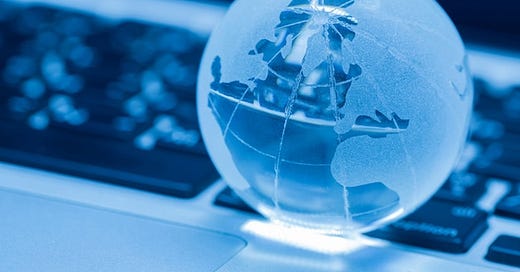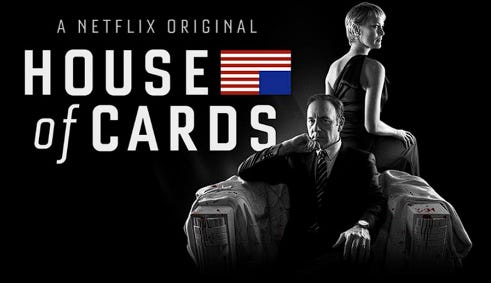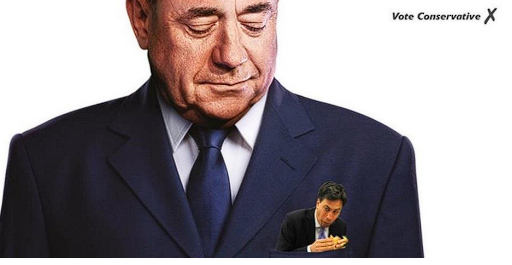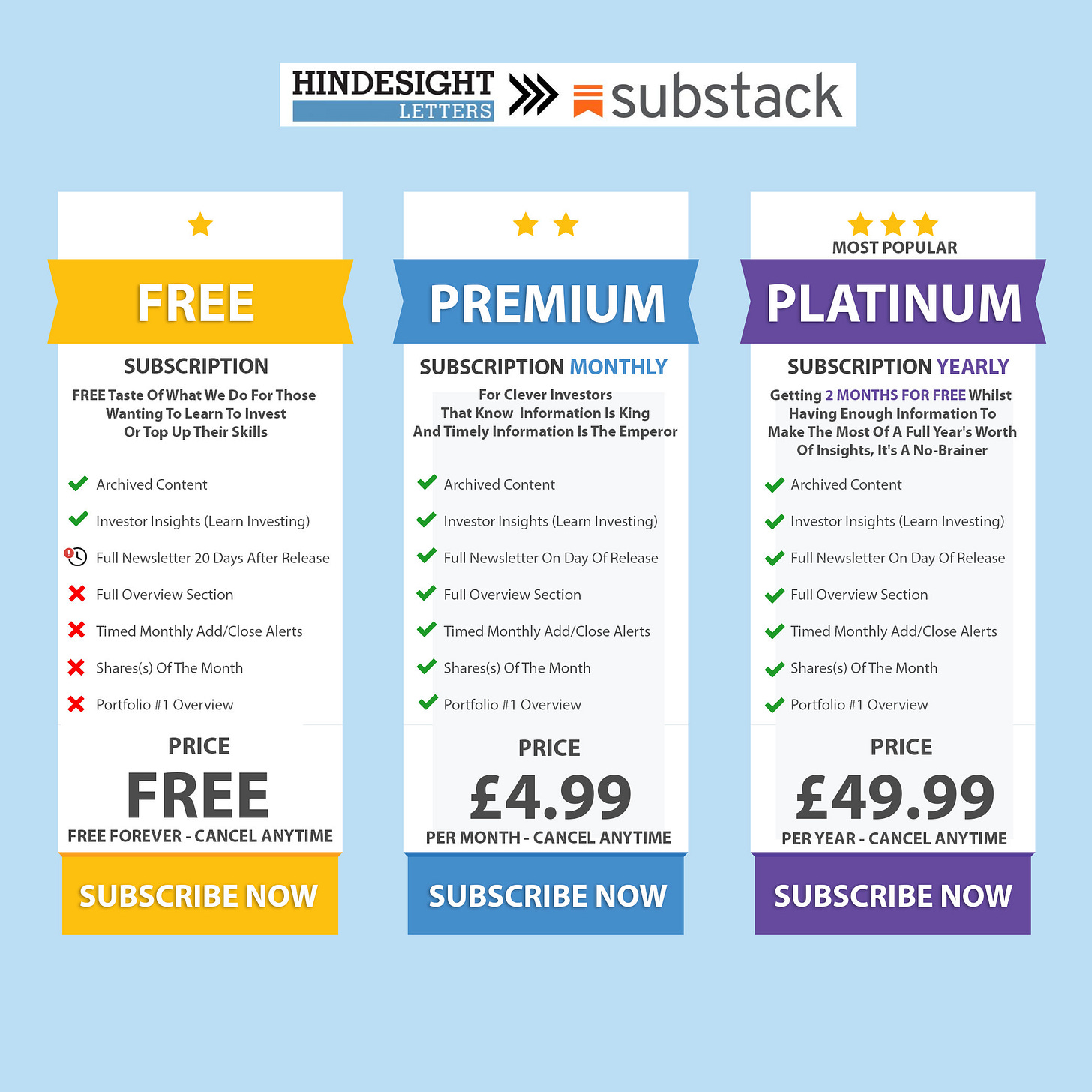HindeSight Letters Investment Insights Archive - READ HERE
Our FREE archive posts allow our subscribers to access valuable insights and analysis and a deeper understanding of market trends and investment strategies that were relevant at the time the HindeSight newsletter was published.
Additionally, reading archived newsletter content can give you a sense of the long term performance of the investments or strategies discussed which can be helpful in making informed investment decisions.
Furthermore reading this content can provide historical context and help you see how market conditions have changed over time, allowing you to better anticipate future developments.
Overall reading our archived content can be a useful tool for gaining a broader perspective on the market.
INVESTMENT INSIGHTS ARCHIVE
Originally posted in March 2015
‘SMART’ POWER - A HOUSE OF CARDS OR REALPOLITIK(S) PART 1
By Ben Davies
Around 40% of the world’s population has an internet connection today. In 1995, it was less than 1%. There are over 3 billion internet users currently or almost half the global population. The first billion users were reached in 2005, the second in 2010.
According to internetlivestats.com, if we observe the top ten countries by usage penetration, i.e. the percentage of the population with the internet, the stats are quite revealing. China’s internet usage is some 641 million people and so, unsurprisingly, it is number one on the internet usage ranks. However, it only has 46% usage penetration out of a country population of 1.4 billion. The US ranks as number 2 with 280 million users, an 87% penetration. At number 3, India has 243 million users, but only a 19% usage penetration. The lowest usage penetration is Eriteria at sub 1%.
When you eyeball this list of 189 countries’ internet usage, it becomes clear that the most impoverished countries have the lowest usage. The cost of infrastructure, education and corruption are the likely impediments they face. Most of these countries have an extreme inequality of wealth, which makes a mockery of Pareto’s 80:20 principle. I suspect 99.9% to 0.01% is a more reflective ratio of their wealth divide. These countries really need the ‘Smart’ power of the internet to affect sustainable positive economic change and rebalance this inequality.
Geopolitics and military power has been at the forefront of the development of many technologies, but this is the first time that communications and the control of propaganda has been wrested to a degree from individual States. Take Eastern Europe, for example. NATO (US and Europe) is embroiled in confrontation with Russia, but it is not entirely clear whether the Ukraine Crisis is a mere proxy war as part of a larger global power struggle. Knowing who and what to read is an imperative if we are to understand where the true conflict lies.
Smart Power
The phrase smart power is more commonly associated with US international relations, where it refers to the combination of hard and soft power strategies, rather than internet influence. It is defined by the Centre for Strategic and International Studies as "an approach that underscores the necessity of a strong military, but also invests heavily in alliances, partnerships, and institutions of all levels to expand American influence and establish legitimacy of American action." Some would call this ‘full spectrum dominance’, others realpolitik(s).
The internet itself is redefining modern diplomacy and political behaviour. This new age has delivered us a global economy that is driven by computing and hyperspeed communications, which in turn has unleashed something far greater than just the fast-flowing corridors of financial capital and free trade I discussed ‘In Views’ last month.
Information Technology has brought greater knowledge and understanding on every topic to billions of people. Access to information is no longer going to be just the preserve of the State, the rich and the educated classes. The 'Internet Reformation' has enabled whole populations to educate themselves. All governments are now answerable to a wider transparency of political understanding. Individuals can unite and mobilise themselves against the real or even perceived injustices of government, at the click of a button. In short, it’s been highly democratising.
Twitter, the online networking service, where one can send short 140-character messages (tweets) has come to symbolise this democratisation, along with that other social media phenomenon, Facebook. At the Berlin Wall celebrations Twitter set up a 'Berlin Twitter Wall'. Such an act would have been deemed unthinkable in the once Communist East Germany. Of course, nowhere is perfect. China shut down the Twitter wall after masses of Chinese users began using it to protest the 'Great Firewall' of China, but this will not always be so, as the increasingly technologically savvy populace is bypassing official information corridors with dark and light webs.
This new techno-financial economic paradigm is arguably no different from the Industrial Revolution, the Ages of Steam, Steel, Electricity, Oil, Automobiles and mass production, except for two things – the speed of innovation is far more rapid and it enables the world’s mass populations to a far greater extent than ever before.
Both national and personal sovereignty have been liberalised and threatened by it, as the boundaries have been obliterated or fortified to offset such radical change. The Facebook Revolution of the Arab Spring, literally did mean that 'hope springs eternal', as Alexander Pope once wrote in 'An Essay on Man'. Fast forward a few years, though, and the vacuum of power this created has been filled by ruthless autocrats and messianic leaders that are arguably even more ruthless than those previously tolerated by other foreign nations. Indeed, new and more malevolent forces have arisen; ISIS has exploited this power vacuum and the social media circus.
Debates on freedom of speech clash with our rule of law. Take the censorship and closure of ISIS sympathiser accounts that promote hatred and murderous intent. This seems a legitimate process and sensible act, limiting widespread access to the propaganda that recruits new jihadists. It’s an interesting debate as to whether we (Twitter) should allow these accounts to continue, so that the Intelligence Services can track and extract valuable information on ISIS and their atrocities.
Whilst the social communication era has provided a wider transparency of information, we clearly suffer from too much opinion and an information overload. As a result, there is more scope for disinformation and propaganda on both sides of the spectrum, and the seeming dumbing down of issues, with the #hashtag ‘wordsmiths’ trivialising the more subtle complexities of current affairs. Sometimes a single word or phrase encapsulates the mood of the crowd, but beware the maddening crowd. It grows and swells disproportionately to the debate at hand. We market participants are only too aware of the pernicious and destructive behaviour of the mania of crowds in investments. This will never change, but social media accelerates this process without a pause for thought. Knowing what to believe is hard at times, but I would contend that the engines of truth are there and can be sought more easily than they ever were before. It needs some flexibility and balance of mind to think through all sides. Nonetheless, the balance of power is being disrupted by the Digital (Information) Age of both intra-and inter-nation states. Intelligence services, censorship and propaganda have viral complications in the new world of ‘smart’ power.
‘SMART’ POWER - A HOUSE OF CARDS OR REALPOLITIK(S) PART 2
‘House of Cards’, the American political drama, is oddly somewhat emblematic of the relationship between smart power, the digital age and realpolitik. The drama observes the realities of US politics today, but it’s the production and delivery of content vis-à-vis an online streaming service which really makes this a first.
Netflix not only provided this show through on-demand internet streaming, but also funded the drama’s production. Online streaming services – think Spotify, in the music industry – have been incredibly liberating for consumers, as they’ve enabled paid subscribers to watch their chosen content at any time, in any place and for as little or as much as they want. This was highly democratising for producers of content, as the powerbrokers within the TV and Film industry – executives, studios and networks – have had their production barriers smashed down.
‘House of Cards’ has been so successful it’s become the first online-only web television series to receive and win primetime Emmy Awards. Unsurprisingly, the business model combined with great content has seen adoption rates at Netflix rise exponentially, driving its earnings and stock price inexorably higher.
‘House of Cards’ depicts the modern day halls of power in Washington DC, where the ruthlessly ambitious, yet beguiling Congressman Francis Underwood (played brilliantly by Kevin Spacey) stomps over anyone and everyone, even the constitution, to avail himself of his ultimate prize – the US Presidency. With his Southern drawl, Underwood is so loathsome you recoil, whilst oddly you can’t help but revere him. A little part of us wishes we could be him – or quite possibly that is just me! Even President Obama was reputed to have said, “At least he gets things done and Congress needs more of that.” His secret-weapon is his wife, Claire Underwood, the actress Robin Wright. She exudes sexual power and guile. They are the epitome of a power couple who want power at any price. The parallels to the Rodhman Clintons are quite clear.
The series opens with congressman Francis Underwood displaying his ruthless pragmatism by killing a suffering pet dog with his bare hands, while explaining to the audience how there are times when we require someone to do the unpleasant thing, yet the necessary thing. Underwood oozes pragmatism in his use of smart power. He personifies what many detractors believe realpolitik truly is.
REALPOLITIK
Realpolitik is the approach to politics, diplomacy and foreign relations that simply acknowledges reality, and thus how best to act in (international) politics knowing these obvious realities. It tends to be non-ideological, holds no ethical or moral high ground and deals with pragmatics. It often takes a leader who can ignore the popular opinion of the time to get things done.
To its detractors, realpolitik is often seen as Machiavellian – "the end justifies the means" – and requires individuals to actually overlook any of their own moral and ethical obligations. It involves coercive tactics of violence, extortion and economic suppression.
Francis Underwood certainly fits the bill.
The term realpolitik comes from Ludwig August Von Rochau, a German journalist and politician in the 19th century. As one can imagine, 'Real' is German for realistic or practical, and of course 'Politik' means politics. Von Rochau coined the phrase in reference to the diplomatic approach of Klemens Von Metternich, a politician and statesman who served as the Austrian Empire's Foreign Minister in the early 1800s.
Von Metternich resided over the Concert of Europe, known as the Pentarchy in Germany and the Vienna system in Russia. This, in a fashion, maintained the balance of power across the continent and settled many outstanding issues emanating from the French Revolutionary Wars, Napoleonic Wars and the dissolution of the Holy Roman Empire. This system of international relations largely held the framework of European international politics for 100 years up until the outbreak of World War I. Another notable practitioner was Ottoman von Bismark during the same period.
Henry Alfred Kissinger, the US Secretary of State in the Richard Nixon administration, has come to symbolise modern day realpolitik. He is a textbook example and proponent of this brand of foreign policy thinking. Interestingly, he was German-born and so, not unsurprisingly, we find that he wrote a 388-page thesis on Von Metternich while at Harvard University. He certainly lived out his learnings.
Maybe history has been rewritten, but the internet describes Kissinger as reflective of a ‘smart power’. In other words, he pursued foreign policy that sought to maintain a balance of power in which no one nation was dominant. Each nation would maintain its independence by aligning itself with or opposing other nations, according to its own calculation of the imperatives of power.
Kissinger achieved the easing of tensions with the Soviet Union, the 'thawing out' known as the detente in the Cold War era. The horrors of a nuclear Armageddon were not just a perceived, but a very 'real' threat, as exemplified by the Cuban Missile Crisis. So he chose a functioning balance of power over any concerns for human rights violations, which was just as well as there were many carried out by countries he aligned the US with.
Nonetheless, for all his pragmatism, he was responsible for loss of life and atrocities that seem totally unjustifiable. But, notwithstanding one's own personal belief systems, it's impossible to comprehend the decisions that had to be made as we don't have the facts as they were presented at the time.
Kissinger memorably secured Mao's China as a strategic partner, even at a time when dealing with 'communists' seemed to be a betrayal for many Americans. He was considered at the time to be narcissistic, but he made unpopular decisions nonetheless. And although he prolonged the Vietnam War, he also secured withdrawal of US troops from Vietnam through his secret negotiations. His ego may have enjoyed all that shuttling around the globe, negotiating deals as a solo representative, but he did get the job done, as one might say.
Oh, so very Underwood. He was evidently aware of the risks of overextension of realpolitik, whereby nations who seek security can acquire too much power. He realised there had to be an agreement on common values. Whilst this was at odds with the concept of realpolitik being non-ideological, one could argue that this was a form of pragmatism.
Kissinger's influence is clear to this day with the now 91-year-old having recently passed on written reports from his travels and meetings around globe to the Secretary of State, Hilary Rodhman Clinton. She wrote a glowing review in the Washington Post of his recent book 'World Order' stating that, despite differences on specific policies, the broad strategy broadly fits the Obama foreign policy efforts. She quoted Kissinger's summary of the Cold War vision as being pertinent today:
"… an inexorably expanding cooperative order of states observing common rules and norms, embracing liberal economic systems, forswearing territorial conquest, respecting national sovereignty, and adopting participatory and democratic systems of governance.”
This seems a surprising alliance, as it was the democratic left who so despised Kissinger under Nixon and then President Ford. It perhaps even illustrates the extent to which the Obama administration has embraced realpolitik(s), despite having a notoriously idealistic President.
Interestingly, Hilary Clinton cites how her strategic rationale was dismissed as "soft". She too referred to it as "smart power". I find it a compelling review and insight into Clinton's vision, but I can't help but ask, is it genuine? Is she Claire Underwood in disguise? Certainly her official emails are never likely to reveal the truth as she has – for ‘convenience’ – used her personal email while working as Secretary of State. Judging by previous US elections, those seeking a presidential nomination when the incumbent cannot stand as he has completed two terms tend to announce their intention about 1 year and 5 months before. For the 2016 Presidential nomination, this takes us to 1st June 2015.
For those of you who aren’t familiar with the American journal of international relations and US foreign policy, ‘Foreign Affairs’, it is a leading independent journal published by the Council on Foreign Relations, a US thinktank. Its members are a veritable who’s who of the US corporate and political establishment. In this most august of publications, I was surprised to read an article entitled Why the Ukraine Crisis Is the West’s Fault? by the political scientist Mearsheimer. The lengthy article was highly critical of American policy towards Russia since the conclusion of the Cold War. Is this realpolitik(s) at play or an independent thought piece?
In contrast, I read another review of Kissinger’s book ‘World Order’ in the latest ‘Foreign Affairs, journal. The article, The World According to Kissinger, was reassuringly back on script for a pro-US foreign policy outfit. Kissinger reasserts his philosophy of maintaining the balance of power. He also acknowledges the broad reach of globalisation has spread capitalism and free trade, lifting millions out of poverty, whilst warning that the risks of economic interdependence can be both a stabilising and disruptive force. In a World order where economic interdependence has never been greater and the debt burden has risen still further, it is clear realpolitik should embrace the ‘smart power’ of the people to prevent the ‘House of Cards’ falling.
The brave new world of technology provides a dilemma for Kissinger, who said: “Knowledge of history and geography is not essential for those who can evoke their data with the touch of a button”. He likens today’s digital optimists – those who believe that he democratisation of cyberspace will solve the world’s most pressing problems – to the naïve Wilsonian idealists of a century ago. He presents us with this stark commentary: “The mind-set for walking lonely political paths may not be self-evident to those who seek confirmation by hundreds of friends on Facebook.”
As for me – am I a realpolitiker or a liberal optimist? – I can’t help but quote the immortal words of Francis Urquhart, from the original ‘House of Cards’, on which the US version is based: “You might very well think that; I couldn’t possibly comment.”
Thomas Jefferson, one of the US Founding Fathers and third US President, put it best perhaps. He said that there should be "but one system of ethics for men and for nations." The Digital Age is clearly challenging this balance of philosophy.
Finally, is Cameron a realpolitiker? Could this poster win the Conservatives a majority?
WHY CHOOSE US?
HindeSight Letters is a unique blend of financial market professionals – investment managers, analysts and a financial editorial team of notable pedigree giving you insights that never usually make it off the trading floor.
We help our paid subscribers have 100% control to build their own portfolios with knowledge that lasts a lifetime and all for the price of a good coffee a month - just £4.99 or save 2 months by subscribing to our yearly plan, only £49.99.
Our history is there for all to see, measure and research.
LIMITED OFFER. GET A 90 DAY FREE TRIAL OF OUR PREMIUM SUBSCRIPTION
Visit hindesightletters.com for more information









